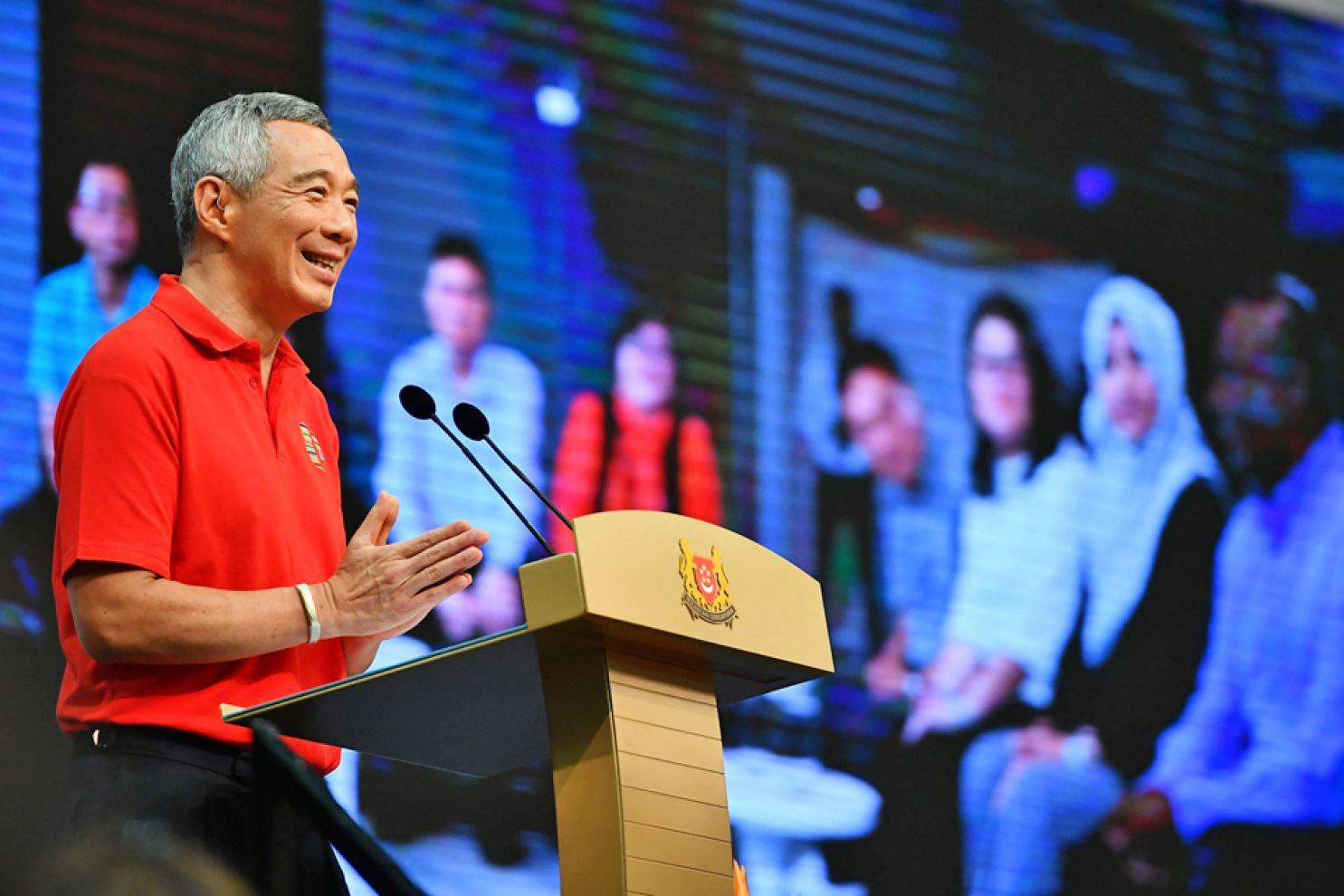Singapore: GDP growth in 2017 may exceed 2%: PM Lee
SINGAPORE’S economy expanded by a better-than-expected 2 per cent in 2016, and Prime Minister Lee Hsien Loong thinks there’s a “good chance” that growth this year can exceed that figure.
If realised, this would put the 2017 GDP figure at the higher end of the government’s official forecast of between one and 3 per cent.
Sounding an upbeat tone at the May Day rally on Monday, he noted that global growth is looking up and this makes him “cautiously optimistic” about the Singapore economy this year.
“(Growth) is uneven still; not every sector is doing well. Some sectors, like retail, are still struggling a bit. But overall, we are improving,” he told some 1,500 union leaders and tripartite partners gathered at Our Tampines Hub for the annual rally.
What was more encouraging about last year’s economic growth was the fact that productivity levels had improved, said Mr Lee, noting that there was one per cent productivity growth in 2016, much higher than in 2013, 2014 and 2015 when it was nearly zero.
“With productivity, the economy can continue to grow, even though our workforce is not expanding and even though we do not have more workers. We can produce more, we can be more prosperous, and our workers can earn more,” he said.
“The challenge is to keep this up – to continue innovating and raising productivity not just one year at a time, but for many more years to come. Some sectors are already doing that; others not yet.”
In his 45-minute speech, the prime minister made the point that economic restructuring is a continuing process that is not without some pain.
The number of redundancies went up last year, and Mr Lee warned of a “steady trickle” of redundancies in 2017 even with better economic growth.
“It’s inevitable because companies have to continue to restructure, and as they do so, some workers will be displaced. That’s why our unemployment rate has crept up a little and reached 2.3 per cent. 2.3 per cent is a bit high for us, but it’s much lower than unemployment rate in all the other developed countries where it is typically between 5 and 10 per cent,” he said.
“We have to understand this trend, but at the same time we have to work hard to resist it, and to keep our workers in jobs,” he added.
Mr Lee spoke of how the government will do its best to create new jobs by bringing in new businesses and investments, as well as expanding existing businesses.
This has been Singapore’s “winning formula” for the last 50 years because there needs to be a business-friendly environment in place with new jobs that will entice people to come here.
The Economic Development Board has been working hard on this front by attracting multinational firms to invest in Singapore, and Mr Lee cited a number of major investments in 2016.
Electronics giant Micron invested more than S$5 billion to expand its Woodlands facility, creating 500 jobs in the process, while Internet search engine Google hired a thousand people for its new campus in Mapletree Business City. Chemical firm Evonik, meanwhile, broke ground for a second plant in Jurong, investing S$800 million and creating 150 jobs.
At the same time, the government is also busy helping small and medium enterprises to upgrade, venture abroad, expand and build new capabilities.
These include both the high-tech companies and traditional ones that are able to re-invent themselves and do new things.
Mr Lee also spoke of the need to help workers who lose jobs to find alternative work, especially the PMET (professionals, managers, executives and technicians) group.
“The businesses have to restructure to survive, and technology is disrupting everything. So redundancies will continue even as our economy grows,” he said, adding that he was particularly concerned about sectors such as marine and offshore that are not doing so well.
Mr Lee reiterated the point that workers in Singapore must do all they can to constantly upgrade their skills, or risk losing out to other countries like China.
“We have got to take worker upgrading very seriously. In other countries, workers know that they need to work hard to keep their jobs. They are hungry. We are hungry, we are working and they are working hard too,” he said.
As he wrapped up the rally, Mr Lee said that while he was in no doubt that Singapore would face many challenges ahead, the outlook remained positive.
He said: “If we strengthen the tripartite system, and remain united, if the labour movement remains strong, takes care of our workers and makes them co-owners of our system, and if all our segments of society – workers, employers, managers and professionals, as well as foremen and rank-and-file – sacrifice equally when sacrifice is called for, and share in the fruits of success when things go well, I am confident that we can overcome the challenges and emerge stronger.”
Source: http://www.businesstimes.com.sg/government-economy/gdp-growth-in-2017-may-exceed-2-pm-lee


 English
English




